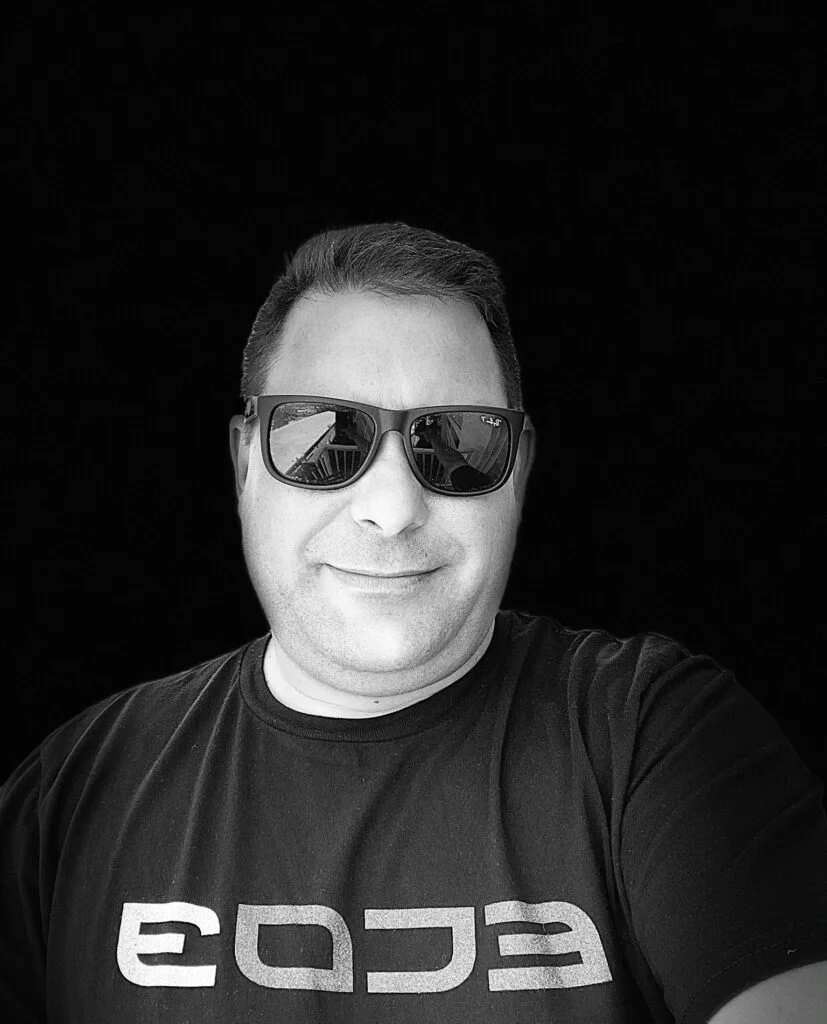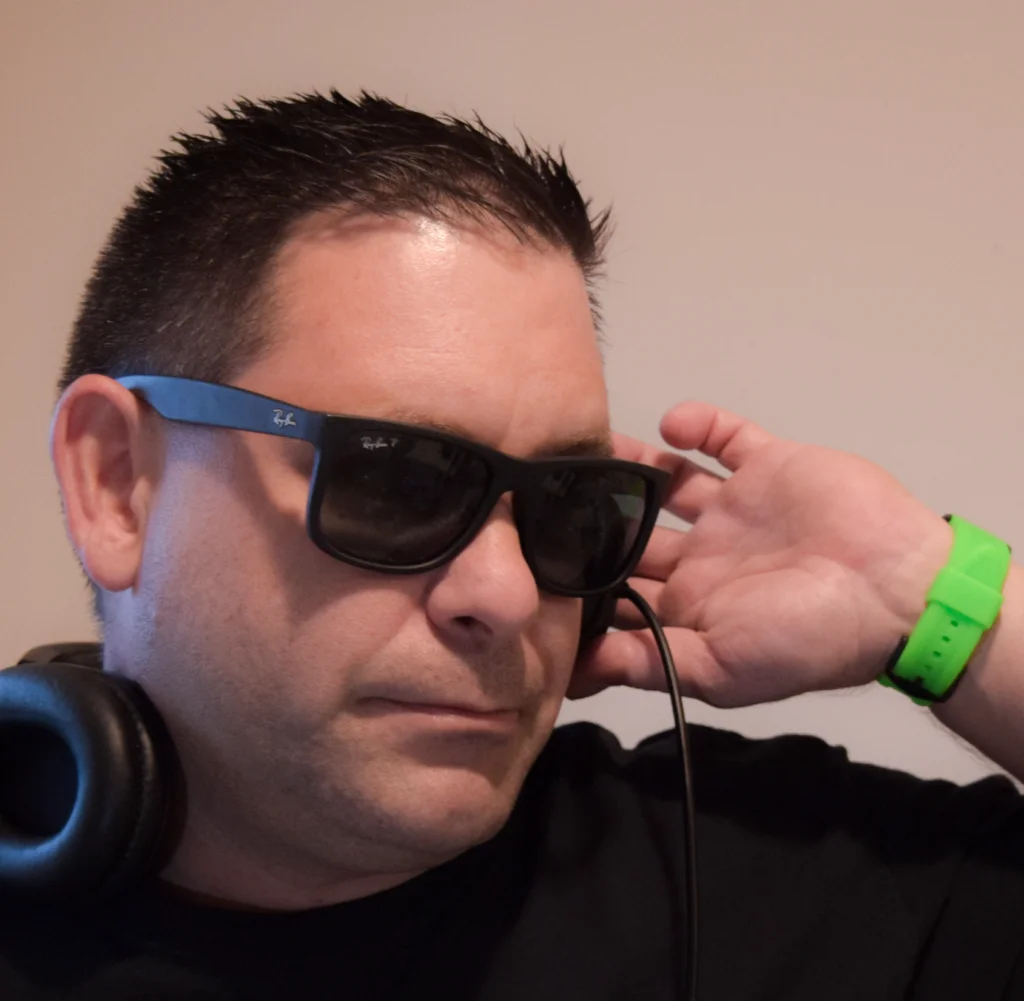
Spanish-born DJ and producer Eco3 has been shaping the electronic music scene for over three decades, blending influences from Detroit, Berlin, and across Europe with his own distinct sound.
From spinning at local radio stations in Majadahonda to headlining clubs in Madrid and Miami, Eco3 has honed a style that fuses House, Tech House, and Techno with a passion rooted in musical discovery. Known for his imaginative productions and fearless approach to creating music that resonates on dance floors worldwide, Eco3 continues to push boundaries. In this interview, he reflects on his journey, inspirations, and latest release, The Friendshiper.
You started DJing in 1987 in Spain. How did the music you played back then influence your current style and sound?
Can you imagine the mind-blowing music at that time? I started going to clubs when I was 16 years old and at that time in Europe there was a boom of music from everywhere! From the legends of Detroit, UK, Germany, Berlin, Holland, Italy (Eurodisco), so from Kevin Saunderson “Good Life,” Erasure, Depeche Mode, Modern Talking, Westbam, Lee Marrow, Front 242—there were a lot of amazing remixes from Holland and Berlin too. I used to mix on Thursdays at “La Casa de la Cultura” in Majadahonda on a local radio station. I found a job as a DJ at a two-floor club in Madrid called “New Toft,” and the resident DJ there, David, introduced me to the owner, and I started playing that night with him. That night Detroit basically showed me the way to House and Techno. The culture was very diverse, so after that night the owner hired me to play there on weekends. That was my influence, but my style and sound came years later when I started working with my DAW FL, since version 4. Years decoding the art of music, using your ideas, your imagination, passion, and love for music until you can create an idea and take it where you want it to sound with the tools you have.
Can you tell us about your first official music release? What inspired that track and how did it feel to put your own production out to the world?
For me the first official release was on Spotify. Everything started with my first keyboard controller from Arturia, the “Minilab” 25-key with 5000 sounds ANALOG. Also, by those days Roland launched the virtual VSTs, synths, and drum machines 808, 909 & 303. I subscribed to them for the full year to receive two instruments for free at the end of that year, 2018. So, I was ready to create a track called “Robotizer” with my 909 & 303. That track was inspired by my friend Brian Dougans.
Check out Eco3 on Traxsource.
How would you describe the evolution of your musical style from your early days in Venezuela to your more recent sets in Miami?
I traveled from Spain to Venezuela with a lot of new music to sell. Most of the music that I played was European, and inversely, they used to play more US music. I learned more about US music like Garage and more House music that started to come out, and that’s when it got interesting. Then Techno hit just back in 1990–91. Talking about the past always brings amazing memories and great times. Music is always in evolution, so this means that the music has its own times. You just must take the most that you like and use it.
What’s your latest release as Eco3, and how does it reflect where you are musically today?
The latest release is called “The Friendshiper” and reflects the very big mass European party style—that’s how the basic idea of the track was in its evolution. I produce music with an idea to create a hit—imagination, genuineness—then the tools and the mind do the rest. I feel that musically it is a risk that I take, because I produce music based on what I believe. The near future will reflect how right it is.
Which artists or genres have had the biggest impact on Eco3’s production and DJ performances over the years?
I have many marked styles inside. There are so many talented people that I admire, or maybe it is because I’m too passionate. When I sit to produce music, I just focus on the style I want to create: House, Tech House, or Techno.

What role do Latin music rhythms and influences play in your sets and productions?
Tribal started all the Latin music back in the late ’80s. I’m not much into Latin House production, maybe I will produce one track to see how it goes, but a very particular one—I mean it must be good.
How do you adapt your music selection and production to fit different venues—from intimate lounges to large clubs and festivals?
Lounges basically are more commercial, so I take some variants in music references depending on the place, but you can start with some Afro House and warming commercial House. In clubs, I particularly play depending on the hour, the amount of people, the mood, and the previous style. Definitely, you have to do a previous meticulous selection of music for festivals.

